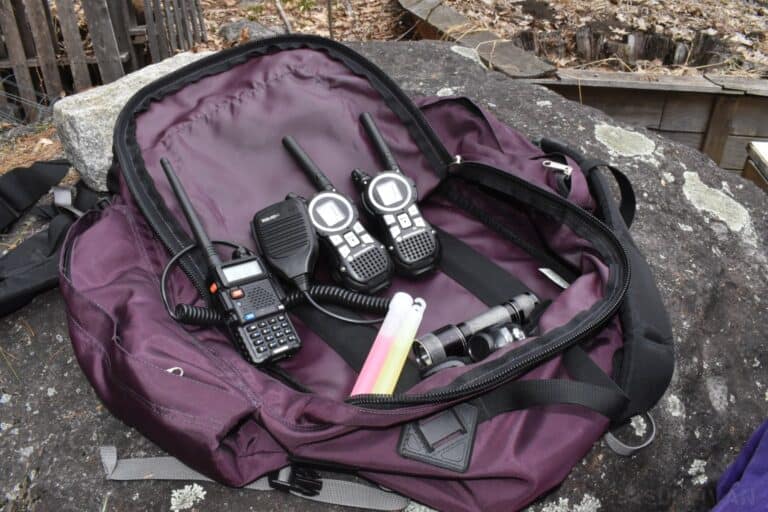One of the coolest things about owning a CB radio is the complete freedom in communication that it affords you. All you have to do is tune that dial, pick up the mic, click the button, and transmit. Or just tune in and surreptitiously listen to whoever else happens to be talking.

Speaking of, maybe you can tune in to police radio and use your CB like a scanner. So, what CB channel might the police be using?
The police do not use any CB channel because they don’t use CB radios for official police communications. CB radios lack the range, performance, and versatility required for modern police work.
Unfortunately, as a rule, you won’t be able to eavesdrop on police communications using your CB radio because they aren’t talking on any CB channels.
That being said, your CB might be more useful than you think for getting in touch with them if it comes to that and there’s plenty more you need to know about police communications besides, so keep reading.
CB Radios are Entirely Inadequate for General Policing Use
As I said, the police don’t use CB radios. For one, CB, or citizen band, frequencies are way too crowded for them to even think about using for official business…
You think online chat rooms are bad? You haven’t seen or rather heard spamming until you’ve been on a CB channel in or near a major metropolitan area or even a good-sized town in some places.
Plus, CB radios by nature are very low power, and lack the range that can dependably keep officers in contact with each other and with HQ and dispatch.
Sure, the terrain has something to do with that, and clever use of repeaters can overcome range and terrain restrictions, but police just generally need more powerful radios no matter how you slice it.
Accordingly, they use various high-power radios in the VHF and UHF bands, and specifically frequencies that are set aside for them by the Federal Communication Commission, or FCC.
What Frequencies Do Police Use?
In the United States, police agencies use all kinds of frequency ranges depending on where they are and other requirements. They might use 4.9 and 5.9 GHz bands, 800 MHz bands, 700 MHz broadband and narrow band, 453 through 470 MHz UHF bands and many others.
Inside their ranges there are many hundreds of individual frequencies, and your local PD or SO may use any of them.
And as you might have guessed, since the FCC has set aside these ranges for official business, that means you have no business whatsoever transmitting on them; listening is one thing, but if you transmit on them using some other kind of radio, you can be in for a world of trouble!
Can You Listen to Police on CB Radio?
No. CB radios, as a rule, will not pick up police frequencies although there’s no telling where there might be some overlap every once in a while.
Again, police departments use tons of different frequencies, and occasionally ad hoc solutions are required that CB radios might be able to pick up, but this will be an exception.
If you want to listen in on police communications, you’ll need a scanner, and you should also keep in mind that, increasingly, police are switching to encrypted digital communications to prevent exactly this.
That being said, there are a couple of CB radio sets out on the market that integrate a CB radio transceiver with a dedicated police scanner, allowing you to basically get the functionality of both in one unit.
Note that you will not be able to talk to them, obviously, but you can listen in on the cops while having all the benefits of CB in a unit with a small footprint.
You Can Contact Police and First-Responders Using Channel 9 on Your CB
So as a rule, you cannot listen to cops on CB radio because they don’t use it, but there is one exception, and it’s an important one!
If you have a CB radio when there’s ever an emergency, maybe someone is stuck or hurt, you’re stranded, there’s a wreck or a crash, anything, you can tune in to channel 9 and broadcast a distress call. This channel is also a lifesaver if you cannot get phone reception after a disaster.
Pretty much every police agency, everywhere, in the United States monitors channel 9 for emergency traffic, and if it’s not them, it’s some other first responders like the fire department, EMS, or someone that will be able to render some kind of aid for you.
And that’s why everybody is supposed to stay off of that channel unless it’s an emergency! That’s what it is there for!
The police or other first responders might talk to you on that channel, or at least acknowledge your stress call, so be prepared to give them additional information about your own situation or on behalf of someone else.
Remember to mind your manners and use proper radio etiquette even during that stressful time because that’s only going to speed up the response.

Tom Marlowe practically grew up with a gun in his hand, and has held all kinds of jobs in the gun industry: range safety, sales, instruction and consulting, Tom has the experience to help civilian shooters figure out what will work best for them.
